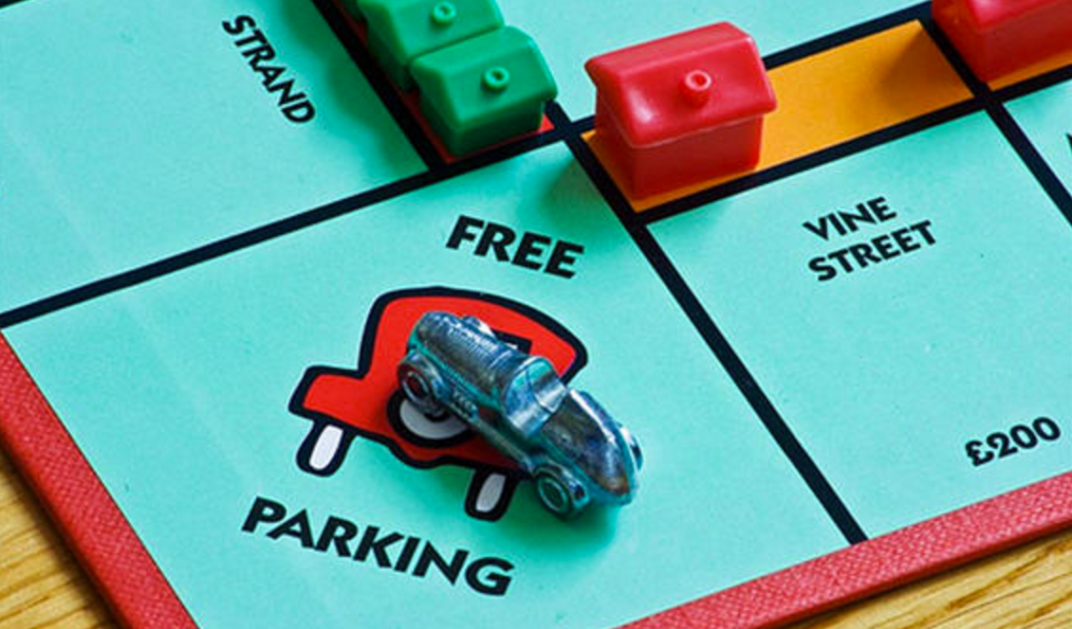This Christmas I was in between night shifts. As a result, a kind long term friend took me in for Christmas dinner when I woke up at 6pm. Let some of my other friends he was a boardgame enthusiast, so it wasn’t surprising that we spent a couple of hours after dinner playing a boardgame. As we played we reminisced about our first introduction into boardgames. Like most people our first one was Monopoly. We both loved it as children but nowadays we never played it for the simple fact that it’s rubbish. The game simply relies on blind luck with little strategy.
“How can such a terrible game be so popular?”
He asked. I simply had to agree. My speculation is that it was simply down to tradition. A rather strange tradition at that as it usually took hours and sparked fights. The rest of the evening was spent talking about coding and certain side projects that we could pursue if we had the time past our postgrad workloads. As I went home I couldn’t help wonder about Monopoly’s extremely bad and flawed game design. How could such a well respected boardgame company back such a terribly designed game? Then it hit me, I’d never actually read the rule book. I was simply taught by my parents. In fact, this is such an issue that Hasbro set up a helpline for Christmas this year. Considering that the rules are fairly basic it implies that people are just not reading them. Here is a list of rules that people get wrong:

Free parking: There are some people who put all the fines in the middle of the board and whoever lands on free parking gets it. This is simply made up, free parking does nothing.
Going around the board: nowhere in the rules does it say that you have to go around the board once before being able to buy properties. Think about it, it’s a completely pointless rule, just give an extra £200 at the start if this was needed for game mechanics as the movement is random from the get go anyway. All it does is slow down the game for no reason.
Buying property: If the player who lands on an unowned property chooses not to buy it then it is auctioned to all players and the highest bidder buys it. This not only speeds up the game but involves strategy (bidding may start at any price).
Bankrupt a player: If you bankrupt a player you get all their assets, they do not go back to the bank. This also speeds up the game.
Landing on go: If you land on go you don’t get £400, you just get the £200 like everyone else.
Borrowing money: The only way to borrow money is mortgaging your property to the bank. No player is allowed to lend money to another player. This not only speeds up the game but also prevents fights and social politics by people refusing to lend to others whilst helping out another player with cash.
Making money in jail: You can still make money whilst being in jail.
Finite buildings: There are a finite number of buildings when they run out that’s it. This is supposed to represent the supply and demand of property.
“If there are a limited number of houses and hotels available and two or more players wish to buy more than the bank has, the houses or hotels must be sold at auction to the highest bidder”
This adds extra strategy to the game. Some people can be baited into paying more than it’s worth and lose money on an investment.
Not paying: If you land on a property and the owner doesn’t realise, they cannot ask for the money once the next player rolls the dice. This is to keep the game pace up and mimics squatters rights in real life renting situations.
These are a result of people not reading the rule book for generations and passing down the ad-hoc rules to another generation, only to get slightly warped again. This has become acknowledged by Hasbro who has now incorporated them into a “house rules” option. Though I don’t recommend using them unless you want more arguments, less strategy and a more drawn-out game.
So how does this link to clinical practice? What does this show us? It shows us that we can warp and twist even simple concepts like Monopoly rules if we don’t bother to read the rule book and rely on learning from more experienced players. In a medical context, a recent study in the Harvard Review analysed over a million patients and found that female doctors were less likely to kill their patients and had lower readmission rates. What they found was that female doctors had better communication skills and were more likely to follow clinical guidelines. In other words, they were more likely to read the rule book and follow it. As big data and machine learning play a bigger role in clinical guidelines we may see an even bigger gap in this statistic in the future. Below is a video giving a quick insight into what’s happening with machine learning and big data on clinical decision making:


But it still doesn’t explain why such a bad game is so popular, as everyone plays with the adjusted rules, not the proper rules! Whether the game is better with the proper rules is another question.
LikeLike
True, I haven’t played it with the proper rules. It might be better but to be honest I have played so many good board games now it probably won’t be worth the time trying it out again.
LikeLike